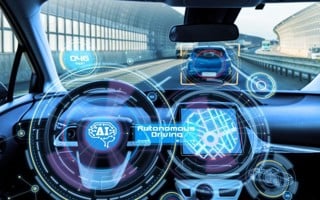Driverless taxis are coming to London in a move that could reshape urban mobility in the UK.
British AI firm Wayve and ride-hailing giant Uber today announced the first-ever public-road trials of fully autonomous Level 4 vehicles in the capital.
This partnership makes the UK the largest market yet where Uber has committed to launching autonomous vehicle pilots powered by Wayve’s Embodied AI, which teaches cars to drive like humans in complex real-world streets.
The announcement comes on the same day as the UK government revealed a fast-tracked regulatory framework for commercial self-driving pilots as part of its ambition for the nation to lead the global race for autonomous mobility.
"With Uber and a global OEM partner, we’re preparing to put our AI Driver technology into real service on the streets of London," said Alex Kendall, CEO and co-founder of Wayve. "This is a defining moment for UK autonomy - our system can learn to drive anywhere, in any vehicle. This trial is a huge step toward making smart, safe, driverless rides part of daily life."
Unlike the relatively straightforward grid systems of US cities where most AV testing has occurred, London streets present a more complex challenge.
The trial will begin once Uber and Wayve secure permits and safety approvals from Transport for London and the Department for Transport. The partners said vehicles will be introduced gradually and monitored closely as part of a rigorous oversight process.
Mike Hawes, chief executive of car manufacturer industry body SMMT, said: “Pilot rollout of commercial self-driving services from next year will widen public access to mobility, while the consultation will ensure the technology is deployed in a safe and responsible way. These latest measures will help Britain remain a leader in the development and introduction of self-driving vehicles.”
“Autonomous vehicles won’t just change how we move - they could save thousands of lives and transform access to education, work and healthcare,” added Andrew Miller, chief executive of Motability Operations. “This announcement is a vital step forward.”
The UK government estimates suggest AV technology could unlock up to £66 billion in economic benefits and create over 340,000 jobs by 2040 while in terms of safety, it could help prevent nearly 4,000 deaths and 60,000 serious injuries over the next 15 years.





















Login to comment
Comments
No comments have been made yet.